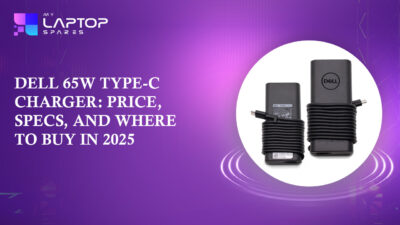Who Makes The Better Server For Enterprise: Dell Or HP?

Intro
An Enterprise server is a comparatively larger form of computer that is installed within a company to collectively serve its requirements. These are not usually single-use and are connected with multiple systems within a company. You can say that it works as a LAN server, which works actively within a building, serving all the tasks in an enterprise.

About
HP and Dell are amongst the benchmark servers which larger enterprises prefer to install as a server. Both have powerfully structured, well-built storage, a strong in-built security system, and a system-compatible interface which makes them capable of serving as powerful servers. Also, both of these brands share similar features which might create confusion sometimes. However, there are some exceptions. You should go for the one that suits your requirement best after a fair comparison.
A guide to making you choose the right enterprise server

If you are fumbling about the server installation, like which one is affordable, or which one has more features, then you are at the right place. We have created this guide for you. Here you will discover:
✅ Features of HP and Dell Server.
✅what are the management requirements of Dell and HP?
Know details about Dell Server
Dell introduced a PE (PowerEdge Server) product line, which is known to be a brand of sophisticated and powerful servers which are the big-time players for facilitating as a server of a large company. Regardless of packaging, all Dell servers within a generation use the same chipset. This enables them to share system images and drivers across all servers:
Multiple options
If you wish to install the Dell server, then the positive part is that you get to choose across 3 options for the same. This enlistment of the server includes.
- Tower
- Rack
- Blade/Modular.
You can choose any of these depending on the server requirement of your company.
Read more blog: Which Laser Printer Is Better, HP Or Brother?
Scalable Architecture
A server with a positive change of expansion without re-installation of a new server is the biggest perk for any scaling business. Dell provides you with an option for the scalability of your server with the growth of your business simultaneously. Hence you can say that it is a good one-time investment in a server.
Automated
What if you get a pre-installed AI, which is capable of upgrading and managing itself without the frequent intervention of the IT team? From stationing to retiral. Their competent automation mechanisms boost the productivity and efficiency of server-based processes.
Safe/security
Every Dell server includes a layer of security assembled into the software and hardware. Open management, their centralized surveillance forum, authorizes them to regulate considerable servers. Hence, you will not get compromised with your data, and instances of data breaches will reduce drastically.
Performance, have no questions asked.
To deliver, high-performance Dell servers are required. They provide unparalleled capabilities, including up to 41% additional transactions per dual and 20.8x rapid questionings. Speed is also a requirement for performing high-end tasks and Dell servers have this capability at their end.

Dynamic OS support
The best element of Dell Server is that it is not restricted to any Operative System, implying that it is capable enough to serve varied OS, including BIOS, Ubuntu, and various brand versions – Red Hat Enterprise Linux, Windows Server, SUSE Linux ES, Citrix XenServer, and VMware ESXi.
RAID card compatible
RAID refers to a virtual storage system that is known to combine multiple physical storage drives for enhanced efficiency and abundant storage. Dell has a PE server that supports the RAID statuses including RAID 0, RAID 1, RAID 5, RAID 10, RAID 50, and RAID 60 in both superficial and interior configurations.
Memory (Cloud)
Dell PE supports a wide range of memory including DIMMs or UDIMMs, RDIMMs, and LRDIMMs. They have rendition characteristics analogous to TruDDR4 DIMMs. Dell servers aid ECC DDR2, DDR3, and DDR4 memory at ranging momenta, with an ultimate RAM capability of 12 TB.
All you need to know about HP server
HPE server portfolio sports a vivid variety of servers, which go well with up-scaling and small businesses. Here, you are going to get all sorts of servers for all natural res of business. Let’s see the available types of servers under HP.
Varieties of HP server
The accessible model of the HP Servers is as follows:
- ML (Modular Line) servers are tower-based but can be rack-mounted.
- DL (Density Line) has general-purpose rack-mount servers.
- BL (Blade Line) refers to blade servers that are part of the HP BladeSystem.
- For data center environments, SL (Scalable Line) has rack-based models.
- Synergy Blades are available on the SY (Synergy Line).
Perks of installing an HP server
- The HP Proliant servers are known to provide flexibility and increased storage. Also, it enables you to perform heavy tasks by eliminating all chances of system breakdown due to load.
- It calls for less computing energy and floor space.
- HP PE server assists a company in accelerating business outcomes by providing faster memory, computing, and I/O performance.
- Also, you will experience enhanced networking and repository rendition as well as meagerer latency.
- The HP servers are designed to collaborate with large enterprises and deal with high-end tasks like web, analytics, big data, business applications, and so on.
Which one beat the other in server war?
| Dell | HP |
| Dell is far more high performing and is known to show more than 20% increased efficiency if compared to the HP servers | HP Servers have a larger portfolio than Del and are not concentrated on large performing units individually. It implies they are suitable for both scaling and small enterprises. |
| For Installing a Dell server you need to invest around 2 lakhs to 12 lakhs INR depending on your requirement and model. | HP, being more economical, you have to spend around 1 lakh to 6 lakhs. Also, up-scaling the server costs more. |
A comparison in Dell and HP management system: IDRAC vs ILO
HP works on the ILO while Dell gets monitored by the IDRAC. ILO monitoring is more advanced compared to the IDRAC and is more problem-resolution oriented than the IDRAC. However, Dell is rigorously improving its monitoring system too.
Summary
Now that we have encapsulated all the major information on Dell and HP servers, you will be able to make your choice of server accordingly. Also, you must stay tuned to the website for more such content.
Categories
- Accessories (83)
- Gaming Laptop (6)
- Keyboard (14)
- laptop (17)
- Laptop Adapters (15)
- Laptop Batteries (29)
- Laptop Screen (14)
- Laptop Spares (15)
- Uncategorized (1)
- video conferencing (6)
Recent Posts

How to Identify Fake Dell Laptop Batteries
In today’s technology-oriented world, our laptops are essential tools for professional tasks, learning, and leisure activities. Among the reputable laptop brands,... read more

Dell Charger Buying Guide: Wattage, Voltage & Tips
Your Dell laptop’s dependability relies heavily on the charger that powers it. Whether you’re a night owl student, a busy... read more

How Much Does a Laptop Charger Cost? Pricing by Brand & Specs
Both our personal and professional lives now depend on our computers. Your laptop charger is essential whether you're a professional... read more

Installing SSDs in Dell Laptops: Benefits and Procedures
Upgrading your Dell laptop with a Solid-State Drive (SSD) is one of the most impactful improvements you can make... read more

Best Online Stores for Laptop Parts: Global Options for Every Model
For work, school, play, and everything else in between, laptops are now indispensable. However, what happens if it starts to... read more

Dell 65W Type-C Charger: Price, Specs, and Where to Buy in 2025
In the constantly changing and growing world of laptops and portable technology, keeping your devices powered efficiently and safely is... read more
